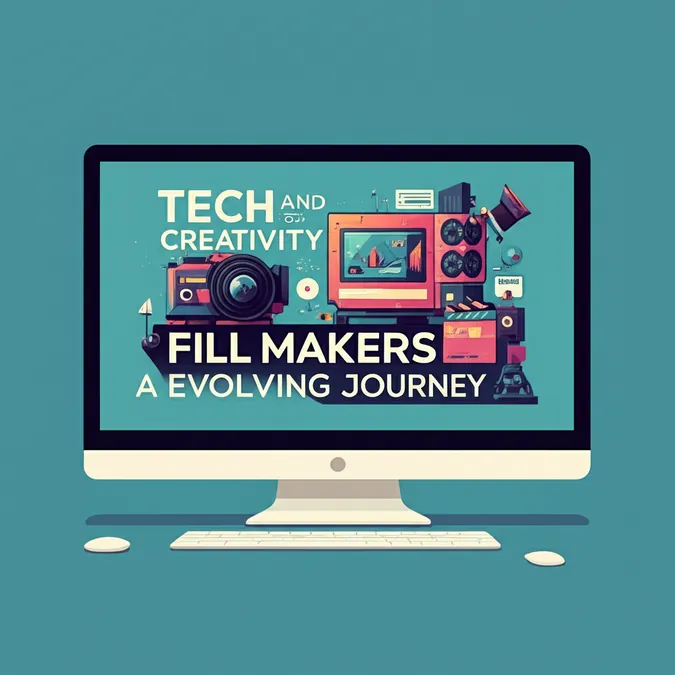Developer Offer
Try ImaginePro API with 50 Free Credits
Build and ship AI-powered visuals with Midjourney, Flux, and more — free credits refresh every month.
Banani AI Revolutionizes Product Design With Prompts
The Challenge of Modern UI Design
Designing user interfaces has long been a complex and often frustrating endeavor. It's typically a slow, fragmented process, weighed down by numerous tools, constant back-and-forth communication, and a significant lack of automation. This is especially true for small businesses and early-stage entrepreneurs who may not have dedicated design teams.
Introducing Banani AI: A New Design Co-pilot
However, a Ukrainian-founded and Berlin-based startup is poised to change this landscape. Banani AI has developed an innovative AI copilot specifically for UI design, crafted to simplify and dramatically accelerate the user interface creation process.

From Text Prompts to Functional Designs
Banani AI works by converting text inputs into functional designs. This approach streamlines workflows for professionals across various industries. The system is designed to adapt to individual design systems, stylistic preferences, and even a user's unique tone of voice and specific references.
To understand more, I spoke with co-founder Vlad Solomakha.
The Journey of Co-founder Vlad Solomakha
Originally from Kyiv, Ukraine, Solomakha's passion for design and product development began in his teenage years.
"I was lucky to find my passion early, around age 12, building websites and developing mobile games. Back then, I didn't even realise that some of the things I was doing could become a career. It was all just natural exploration."
At 18, he joined Preply, one of Ukraine's most successful product companies. There, he contributed significantly to the product's design and eventually transitioned into product management, launching initiatives like the company's first mobile app.
"It was like a boot camp on how products are built at scale," he recalls.
Later, Solomakha started his own company, sparking a deep interest in how AI could revolutionize product design—from user flows to gathering user insights. This shared curiosity with Vova Parkhomchuk, a friend and like-minded product engineer, led to the co-founding of Banani AI.
Making Design Accessible to Everyone
Banani AI aims to empower anyone to design beautiful, user-friendly products. Users can input a basic idea, and Banani will generate a prototype.
Crucially, the platform also supports use without direct prompting. According to Solomakha, "prompt engineering is a real barrier for many people."
"So we've designed it so you can just click on elements and we'll predict the next step in the user flow automatically."
"We don't want users spending hours writing prompts. Banani should work in the background—understanding your users and your product priorities, and suggesting design ideas directly in tools like Slack."
Empowering Small Businesses and Solopreneurs
The primary users of Banani AI are small to medium-sized companies that often lack dedicated design resources or even product managers. The startup also sees significant adoption among early-stage founders, especially solopreneurs. These users might otherwise turn to tools like Webflow or Bubble but find prototyping in those platforms slow or requiring coding skills.
Solomakha explains:
"We help them remove that bottleneck and empower product managers or early-stage founders to create prototypes quickly."
"It's about understanding users, knowing what they need, and using data and research to improve products."
Real-World Applications and Success Stories
Common use cases for Banani AI include redesigning onboarding flows, prototyping new ideas, and building SaaS applications.
Solomakha shared a compelling example:
"We recently had a call with a mid-size company building a custom CRM. The founder used Banani to prototype a huge flow without needing to involve a designer, saving weeks of back-and-forth."
Other users include founders exploring new product ideas, such as mobile apps. They leverage Banani to quickly visualize onboarding flows, main screens, and the overall user experience. The product operates on a SaaS model, currently offering a basic subscription plan. The demand is evident, with Solomakha noting that one power user has generated over a thousand designs.
AI as a Partner: The Future for Designers
When asked about how traditional designers might perceive Banani AI, Solomakha acknowledges that designers can be protective of their craft and cautious about AI tools.
"But we're seeing more using Banani as a partner, especially for structural tasks or quick iterations. Originally, we built it for designers, but we saw stronger feedback from non-designers, so we adjusted."
"Designers will always be needed as user advocates, synthesising research and transforming insights into effective experiences. We see Banani as transforming roles, not replacing them."
Solomakha predicts that in the next 5 to 10 years, roles like product managers and designers will increasingly overlap, with AI handling aspects of both functions.
Ensuring Consistency and Democratizing Input
Banani AI also addresses common design challenges like duplication and inconsistency by using AI to spot patterns and link user flows. The company is exploring features like permissions and structured flows, allowing broader team ideation while ensuring approvals still go through a product manager or designer.
"The goal is to democratise product input without chaos."
Growth, Funding, and Future Aspirations
Currently in public alpha, Banani AI has shown impressive traction, recently crossing 14,000 monthly active users and nearly 350,000 designs generated since its launch in October.
The startup recently secured an €850,000 pre-seed funding round co-led by Specialist.vc and Inovo.vc. Solomakha added, "We also have great angels, including the first designer at WhatsApp and former employees of Canva. It was a long process — hundreds of calls — but in the end, we found partners who really believe in our vision and understand the product."
Banani AI was also recognized as one of 38 Ukrainian startups awarded funding by the Seeds of Bravery consortium, an EU-funded initiative under the European Innovation Council (EIC) aimed at supporting Ukrainian tech startups.
Looking ahead, Banani aims to become the central product-design hub for teams. While it currently focuses on early-stage design, the roadmap includes building layers to connect user insights, generate better flows, and ultimately create a true "design brain" for companies.
Compare Plans & Pricing
Find the plan that matches your workload and unlock full access to ImaginePro.
| Plan | Price | Highlights |
|---|---|---|
| Standard | $8 / month |
|
| Premium | $20 / month |
|
Need custom terms? Talk to us to tailor credits, rate limits, or deployment options.
View All Pricing Details

